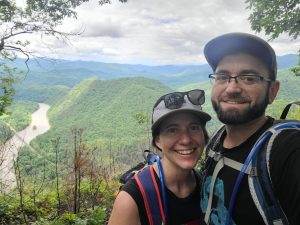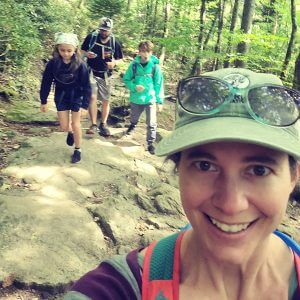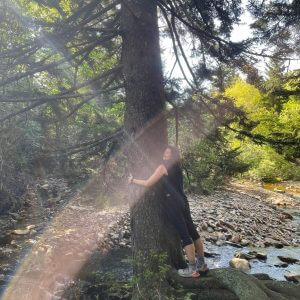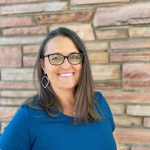Renée Mazurek
Originally from Hastings, Pennsylvania, Renée Mazurek (she/her) now lives and works in Asheville, North Carolina, on the lands of the Eastern Band of Cherokee.
Renée joined River Network in 2021. As the Resilient Communities Manager, Renée shares success stories from network members and projects (through impact stories and story maps); supports collaborative efforts (for equitable development and trust-based philanthropy); and manages the member maps for River Network and the Urban Waters Learning Network. Renée’s background is in geology and she has BS from the University of Pittsburgh and a MS from East Carolina University. Her master’s research took her to the Altiplano of Peru to study the fluvial and climatic history of the Rio Ramis Valley. As a part of the Inland Northwest Research Alliance through the Idaho State University, Renée spent time researching and modeling the 3-dimensional structure of the Snake River Plain in relation to groundwater flow paths to the Snake River. In Western North Carolina, where she lives now, Renée taught college-level geology and environmental science at several colleges and universities for over 10 years.

Outside of work, Renée enjoys reading, bullet journaling, and spending time outside hiking and camping with her family and friends.
Which River Network value most speaks to you?
Growth. I aspire to be a life-long learner. As a teacher and a parent, I was and am a big advocate for growth mindset: learning from our mistakes and being open to new perspectives. I welcome this value in both my personal and professional lives.
What was your earliest memory around water?

Growing up in rural Pennsylvania, me, my siblings, and our cousins were often outside playing in small creeks, the local lake, or the swimming pool. We’d spend entire days exploring and submerging ourselves in water, learning about our environment, ourselves and each other. These are foundational memories that have created appreciation not only for the outdoors but also for the ways in which water connects us.
How do you think the conservation community can make the biggest impact?
Rivers are the connection point running through diverse communities and landscapes. In remembering that humans are not separate from but a part of the environment in which we live brings us closer to finding balance at the intersection of human and ecological needs. I think that finding and fostering those interconnections, with a focus on equity and inclusion, will have a big impact on conservation.
How do you recharge outside of work?
 I take intentional breaks from screens, make time to be outside to “recharge,” and create a space for a daily meditation practice.
I take intentional breaks from screens, make time to be outside to “recharge,” and create a space for a daily meditation practice.







